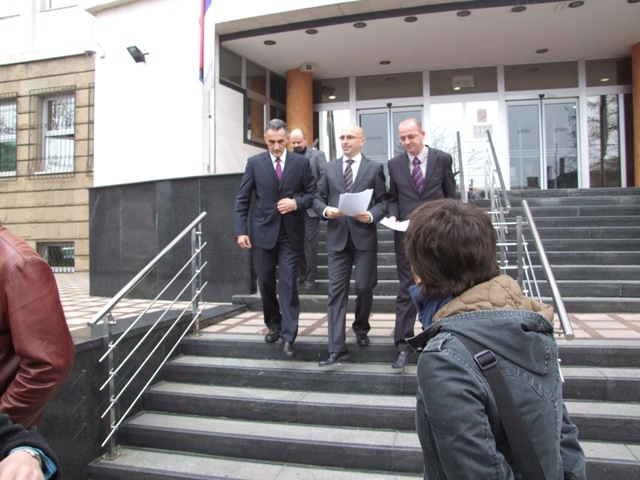Apology
With regard to our wars and war crimes, the ones who apologize the most are the leaders of newly established states. As a rule, they apologize to the people, their own or the other people, during visits or some other important political events. These apologies are short-term and, therefore, they are remembered for a short time. This may be because there has not yet been a single politician who earned the trust of victims from the “enemy side” by his apology or praise from “his own people”. Nevertheless, some words, even though they do not express compassion or apology, remain in the memory. Words said by the President of Croatia, Josipović, on the occasion of marking the 20th anniversary of the international recognition of the Republic of Croatia, had a significant impact on me; he said that Croatia is a better country today and it is due to the better relations between Serbs and Croats. This is the essence of the peace building, reconciliation, justice, and prevention of recurrence of crimes – this is how I see transition from repression and injustice towards the respect for human rights and victims. In the case of Serbia, without acknowledging Albanians, Bosniaks, and Croats, and their better treatment by Serbs – the ones sitting in the government and us “ordinary” people – there can be no better Serbia. This positive approach could help us in defining a “new opinion” about Kosovo.






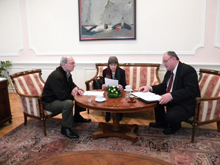
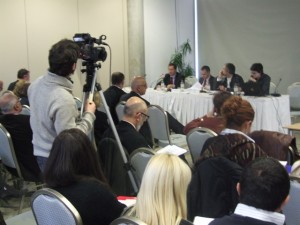
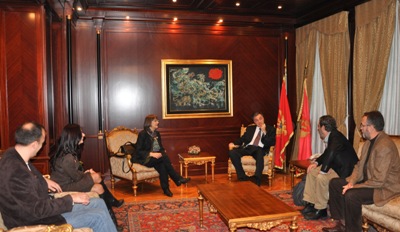 PODGORICA, December 12th, 2011 – The President of Montenegro, Filip Vujanović, had a meeting with the delegation of the Coalition for RECOM consisting of the Humanitarian Law Center’s Executive Director, Nataša Kandić, a professor from the Faculty of Law in Sarajevo, Zdravko Grebo, President of the Independent Journalists’ Association of Vojvodina, Dinko Gruhonjić, Executive Director of the Centre for Civic Education from Podgorica, Daliborka Uljarević, and a journalist from Podgorica, Dragoljub Duško Vuković.
PODGORICA, December 12th, 2011 – The President of Montenegro, Filip Vujanović, had a meeting with the delegation of the Coalition for RECOM consisting of the Humanitarian Law Center’s Executive Director, Nataša Kandić, a professor from the Faculty of Law in Sarajevo, Zdravko Grebo, President of the Independent Journalists’ Association of Vojvodina, Dinko Gruhonjić, Executive Director of the Centre for Civic Education from Podgorica, Daliborka Uljarević, and a journalist from Podgorica, Dragoljub Duško Vuković.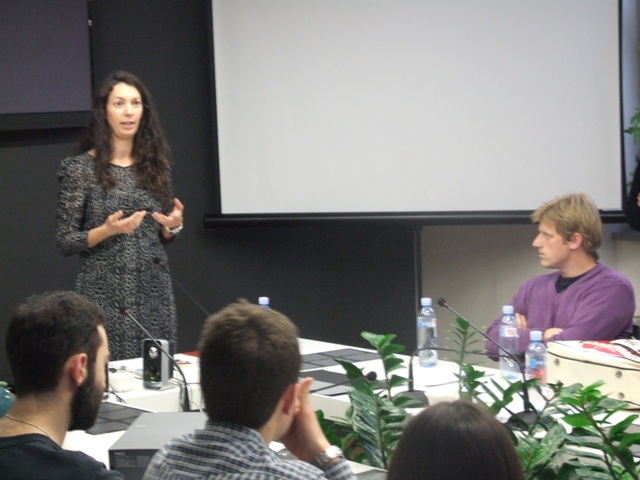
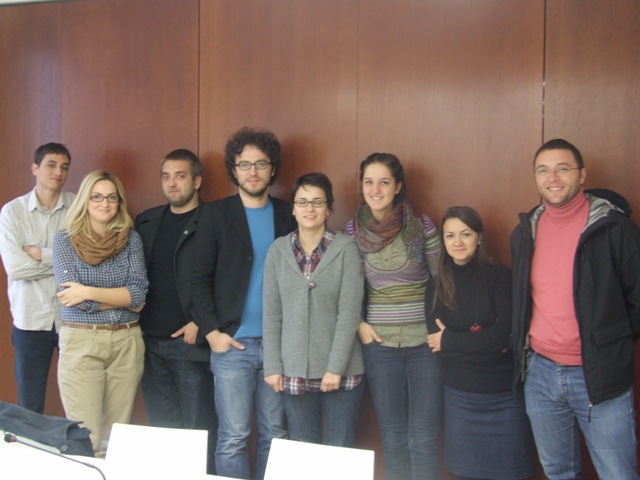 BELGRADE, December 1st, 2011 – A group of journalists from Kosovo visited the Humanitarian Law Center on Thursday and met with Sandra Orlović, Deputy Executive Director of HLC. A presentation of Volume One of the Kosovo Memory Book (KMB) was organized on this occasion.
BELGRADE, December 1st, 2011 – A group of journalists from Kosovo visited the Humanitarian Law Center on Thursday and met with Sandra Orlović, Deputy Executive Director of HLC. A presentation of Volume One of the Kosovo Memory Book (KMB) was organized on this occasion.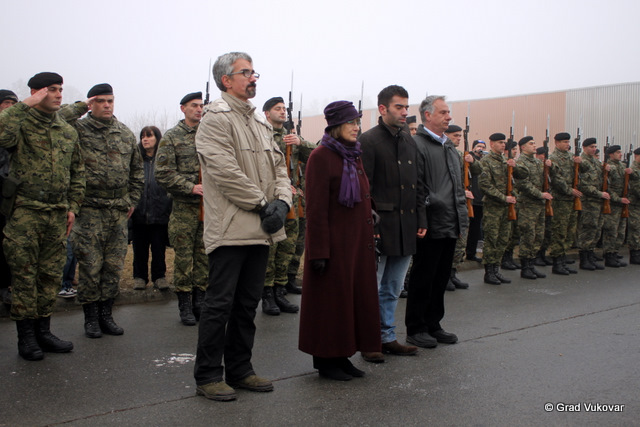 VUKOVAR, November 19th, 2011. The City of Vukovar and the “Vukovar Mothers” Association of Victims’ Parents and Family Members organized the 20th annual commemoration of the victims from Borovo Naselje on Saturday, November 19th . The commemoration programme began with an address by the President of the “Vukovar Mothers” Association, Manda Patko, in front of the ruins of the “Borovo– Commerce” centre located inside the area of the “Borovo” Factory, after which wreaths were laid and candles lit in memory of the victims who died during the defence of Borovo Naselje.
VUKOVAR, November 19th, 2011. The City of Vukovar and the “Vukovar Mothers” Association of Victims’ Parents and Family Members organized the 20th annual commemoration of the victims from Borovo Naselje on Saturday, November 19th . The commemoration programme began with an address by the President of the “Vukovar Mothers” Association, Manda Patko, in front of the ruins of the “Borovo– Commerce” centre located inside the area of the “Borovo” Factory, after which wreaths were laid and candles lit in memory of the victims who died during the defence of Borovo Naselje.